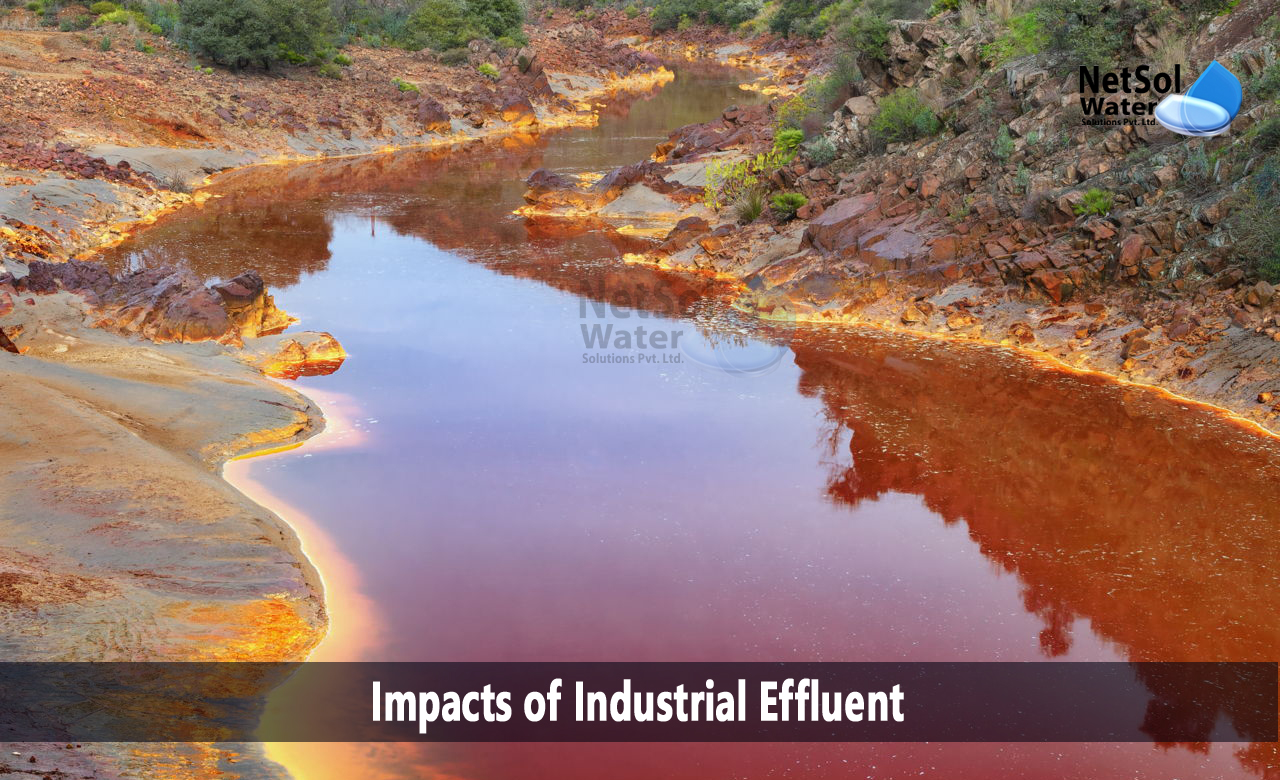An increase in demand for commodities as a result of the growing population has sped up industrialization. Industrial waste output has increased as a result of the rise of industrial setups.
This industrial wastewater seriously harms the ecosystem by contaminating the water, the air, and the land.
Let’s learn the impacts of industrial effluent.
Industrial effluent
Industrial Effluent is defined as water containing dissolved and suspended materials that is discharged from various industrial operations, such as the water released during manufacturing, cleaning, and other commercial activities.
Depending on the sort of industry, the quantity and quality of effluent produced can range from biodegradable materials like paper, leather, and wool to non-biodegradable waste like heavy metals, pesticides, and plastic.
Industrial effluent may be poisonous, flammable, reactive, or cancer-causing. Therefore, the discharge of garbage into water bodies can have terrible repercussions on the environment and human health, without suitable treatment and management techniques.
Pollutants in Industrial effluent
Numerous toxic contaminants found in the effluent from different industrial sectors pose a risk to human health, marine life, and agriculture.
Heavy metals including chromium (Cr), zinc (Zn), lead (Pb), copper (Cu), iron (Fe), cadmium (Cd), nickel (Ni), arsenic (As), and mercury are examples of such contaminants. The manufacturing of paint and dyes, textiles, and the pharmaceutical, paper, and fine chemical industries, emit the majority of these heavy metal pollutants.
Effects of Industrial Effluent's Toxicity
The amount of contaminants in the environment has greatly increased as a result of rapid industrialization. All types of biological forms have been negatively impacted, either directly or indirectly, by the improper management of some hazardous industrial wastes that were dumped into water bodies.
What are the Impact of different industries effluents?
Lignin and its derivatives are the most typical effluents from the paper pulp sector. Due to their poor biodegradability and potential for transformation into hazardous chemicals, during biological processing, they can disturb the hormonal balance of aquatic species.
Textile effluents are extremely toxic due to a combination of dangerous components. Colloidal matter made of chromium compounds and greasy scum serves as a barrier, to keep sunlight from penetrating the water body, lowering the concentration of dissolved oxygen.
Treatment for Industrial Wastewater
For the purpose of cleaning up contaminants from effluent released by various industries, many types of technologies and techniques are being developed and put to use. Several of the techniques created and employed by some significant enterprises, produce effluent for the treatment of effluents.
In general, treating industrial effluent is challenging due to the need for individualized analysis of the configurations, and particular treatment facilities on an industry-specific level. As a result, to handle this, on-site effluent treatment facilities or filter presses are erected to treat the effluent.
Conclusion
Pollutant released from expanding industrial facilities have escalated and are now impacting the entire environment. One of the most detrimental results of industrialization is water pollution. Hazardous contaminants that are generated by industrial sectors have a negative impact on the potability and hygiene of drinking water, endangering the health of people, animals, and aquatic life. Even while, health is a major priority, it is indisputable that industrial progress is also necessary for a rising economy.
Research into the development of such systems that can cut down on the usage of freshwater by industrial sectors, as well as the development of efficient and effective water treatment methods is encouraged for overall socioeconomic progress and well-being. To mitigate any hazardous impacts, new advancements and on-going monitoring of the execution methods, of various programs and interventions related to industrial effluent treatment, are critically important.
High-quality effluent treatment plant manufacturers
Netsol Water is a key provider of WTPs, WWTPs, STPs, and ETPs manufacturing services, among other services. The business manufactures equipment and is dedicated to offering workable solutions, which support the growth of enterprises.
Netsol Water is Greater Noida-based leading water & wastewater treatment plant manufacturer. We are industry's most demanding company based on client review and work quality. We are known as best commercial RO plant manufacturers, industrial RO plant manufacturer, sewage treatment plant manufacturer, Water Softener Plant Manufacturers and effluent treatment plant manufacturers. Apart from this 24x7 customer support is our USP. Call on +91-9650608473, or write us at enquiry@netsolwater.com for any support, inquiry or product-purchase related query.



